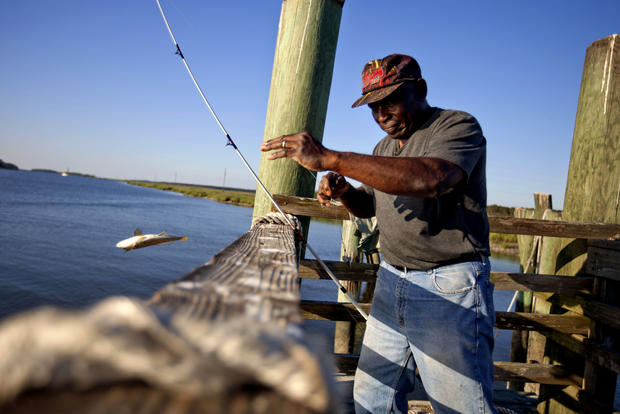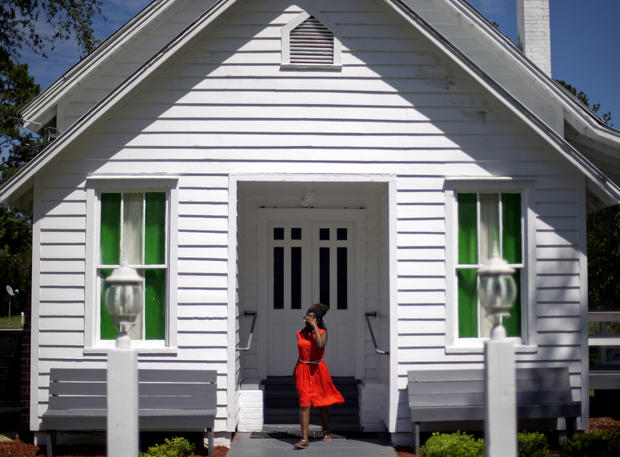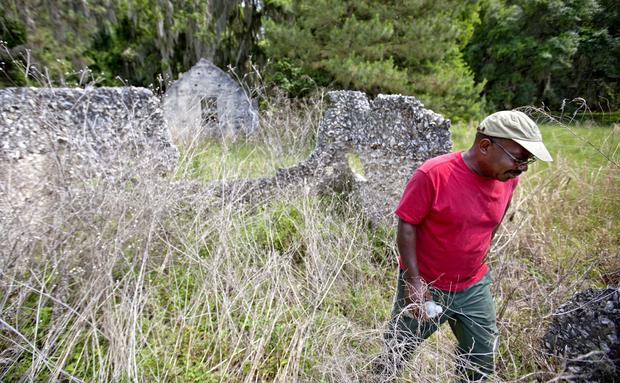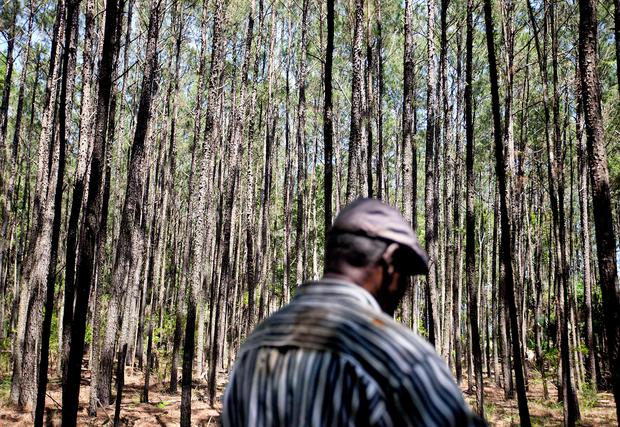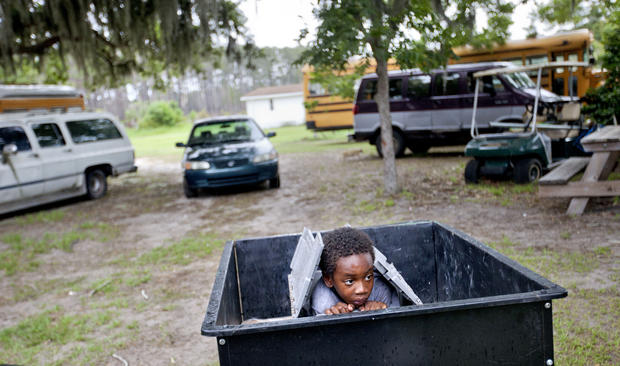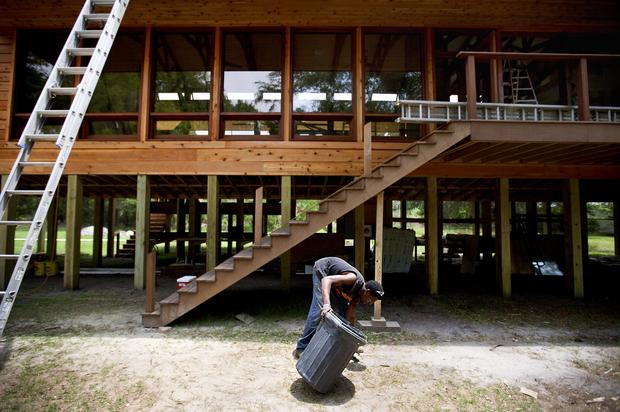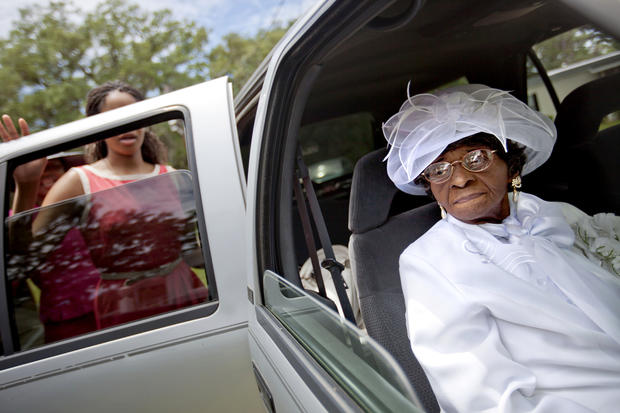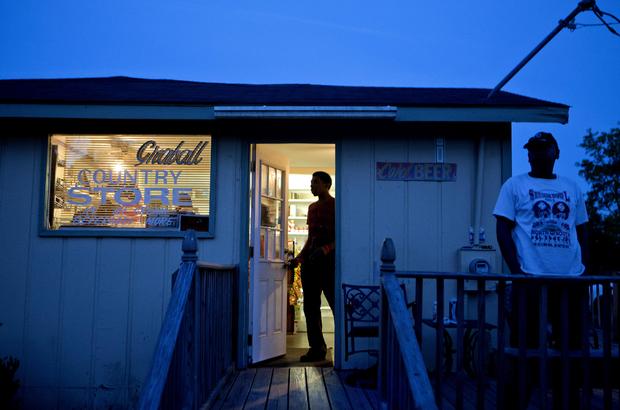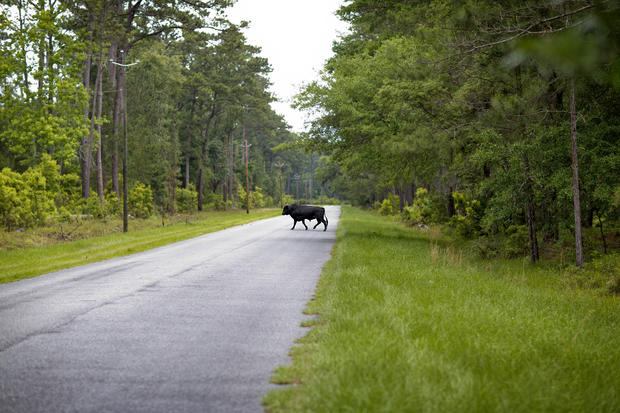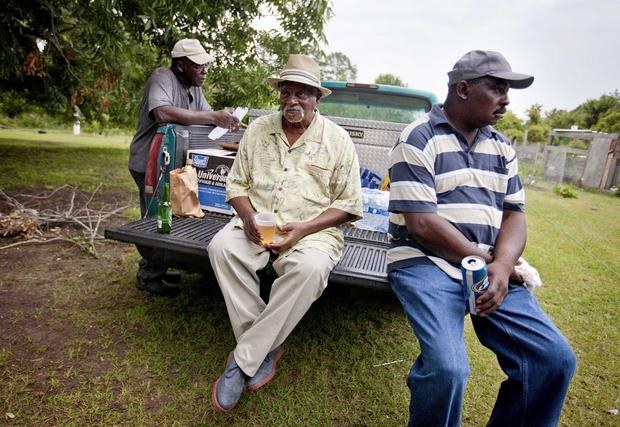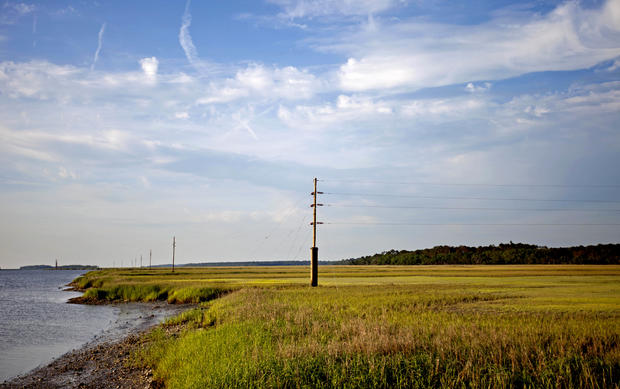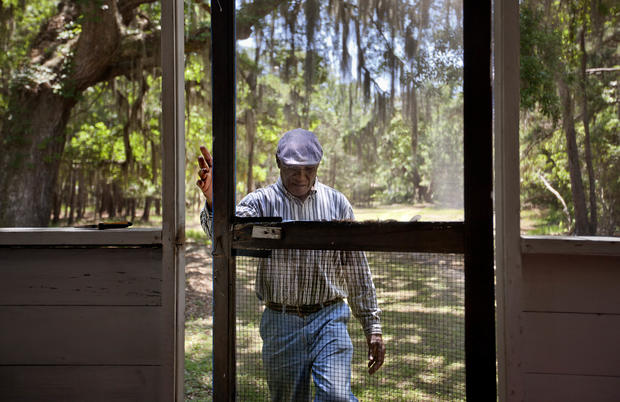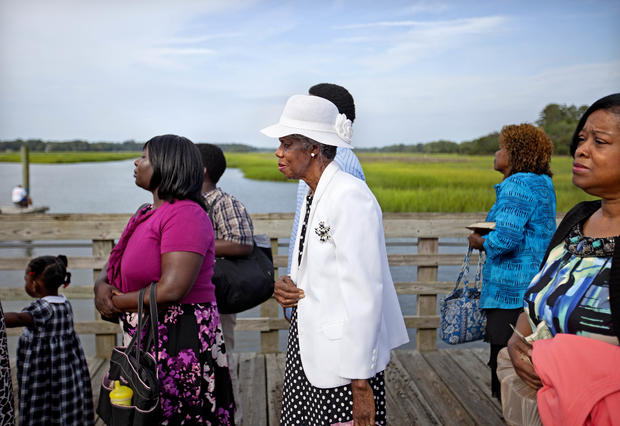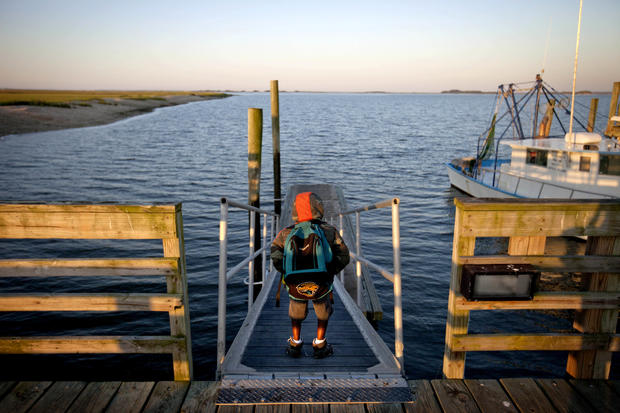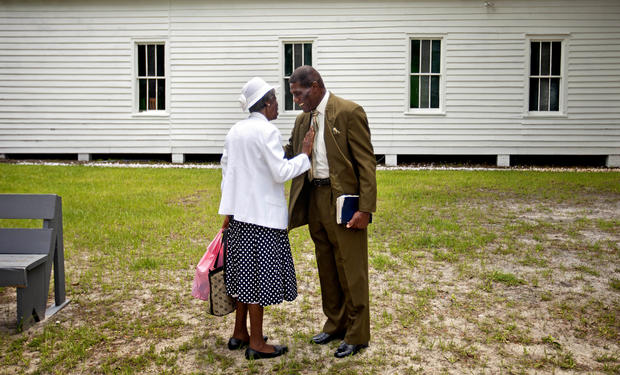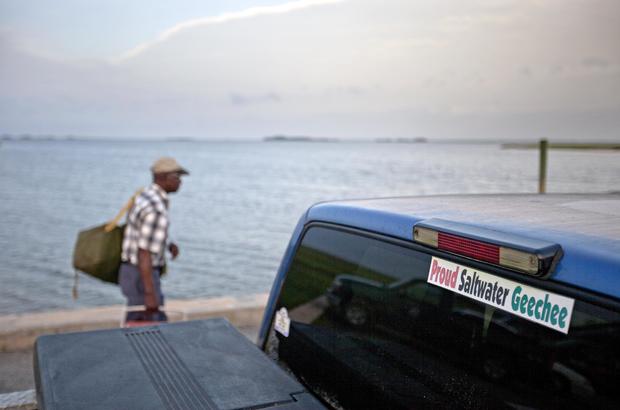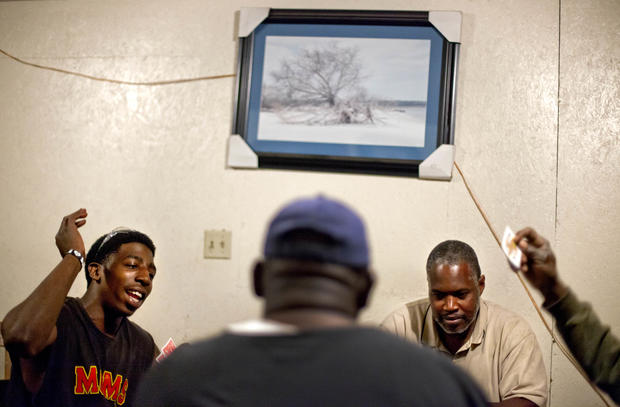Georgia's dwindling Geechee community
Roughly 47 residents, most of them descendants of West African slaves known as Geechee, remain on Sapelo Island, the coastal Georgia island where their ancestors were brought to work a plantation in the early 1800s.
Isolated over time to the Southeast's barrier islands, the Geechee of Georgia and Florida, otherwise known as Gullah in the Carolinas, have retained their African traditions more than other African-American communities in the U.S. Once freed, the slaves were able to acquire land and created settlements on the island, of which only the tiny 464-acre Hog Hammock community still exists.
Residents say a sudden tax hike, lack of jobs, and development is endangering one of the last remaining Geechee communities from Florida to North Carolina.
"People not going to be able to hang on to their property," says Walker. "The people don't make that kind of money on this island."
Grovner is one of roughly 47 residents, most of them descendants of West African slaves known as Geechee, who remain on Sapelo Island.
"Dad built this house with his labor. Every time I put the key in the door coming home as a child, I remember saying, 'Hi, papa. Hi, mama.' It has a lot of remembrance."
"Everyone feels like family here," says Richard Dixon, "I'll fight along with everyone else because this will always be my home."
"Dad built this house with his labor. Every time I put the key in the door, I remember coming home as a child saying, 'Hi, papa. Hi, mama.' It has a lot of remembrance."
